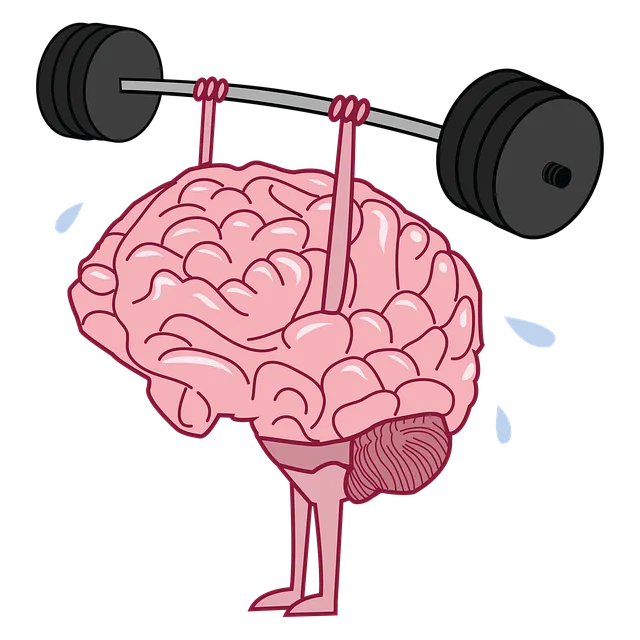Stress management is crucial for mental and physical well-being, with resources like the Kaiser Permanente mental health phone number in Castle Rock offering support. Effective workshops balance education and engagement, using techniques like mindfulness and positive thinking to cater to diverse needs. Interactive activities, relatable content, and emotional well-being promotion engage participants, fostering resilience. Follow-up surveys and interviews measure program success and provide insights for improvement, enhancing services like those offered by Kaiser Permanente in Castle Rock.
Stress management workshops are essential tools for promoting well-being, particularly in today’s fast-paced world. This comprehensive guide explores effective strategies for organizing and delivering such workshops, focusing on techniques that help individuals navigate stress. We delve into understanding the causes and impact of stress, designing engaging content, and utilizing post-workshop follow-up to measure success. For those seeking resources, the Kaiser Permanente mental health phone number in Castle Rock offers valuable support.
- Understanding Stress: Causes and Impact
- Designing Effective Stress Management Workshops
- Engaging Participants: Strategies for Success
- Post-Workshop Follow-Up and Measurement
Understanding Stress: Causes and Impact

Stress is a ubiquitous part of modern life, but understanding its causes and impacts is essential for navigating it effectively. It often arises from various sources, such as work pressures, financial constraints, or personal relationships, leading to both physical and mental health issues. For individuals seeking support, resources like the Kaiser Permanente mental health phone number in Castle Rock can provide a crucial point of contact. These services offer valuable guidance on managing stress levels and promoting overall well-being.
The effects of chronic stress can be profound, influencing everything from mood and energy levels to cognitive function and physical health. It may contribute to mental illness, exacerbate existing conditions, or lead to unhealthy coping mechanisms. However, with the right tools, individuals can take control. Techniques like conflict resolution strategies, mental illness stigma reduction efforts, and self-care routine development have proven effective in mitigating stress and enhancing resilience.
Designing Effective Stress Management Workshops

Designing effective stress management workshops involves a thoughtful blend of education and engagement to empower participants with lasting coping mechanisms. A well-structured program should begin by assessing the unique needs of the audience, whether they’re employees at a corporate setting or individuals seeking personal growth. Incorporate interactive activities, like mindfulness meditation exercises, breathing techniques, and positive thinking strategies, to foster active participation. These tools can be tailored to suit diverse preferences and lifestyles, ensuring that everyone leaves with practical skills to navigate stress effectively.
The Stress Management Workshops Organization, similar to those offered by resources like the Kaiser Permanente mental health phone number in Castle Rock, should also prioritize a safe and supportive environment. Facilitators should create a non-judgmental space where participants feel comfortable sharing their experiences and learning from one another. By combining evidence-based practices with engaging formats, these workshops become valuable investments in enhancing mental well-being and promoting resilience in the face of life’s challenges.
Engaging Participants: Strategies for Success

Engaging participants is a key aspect of successful stress management workshops. To capture and maintain their interest, organizers should incorporate interactive activities, real-life examples, and relatable content that resonates with diverse backgrounds. Starting sessions with icebreakers or group discussions can foster a welcoming atmosphere, encouraging open communication and active participation. Additionally, integrating emotional well-being promotion techniques, such as mindfulness exercises or positive affirmations, allows participants to experience immediate benefits, reinforcing their commitment to the learning process.
For optimal engagement, workshops should be designed with a balance of theoretical knowledge and practical application. Incorporating stories from individuals who have successfully navigated stress can inspire hope and build confidence. Moreover, leveraging resources like the Kaiser Permanente mental health phone number in Castle Rock or other local support networks can enhance the workshop’s credibility and provide valuable follow-up options for attendees seeking continued guidance. Through these strategies, workshops can effectively empower participants to manage stress, improve their overall mental health policy analysis and advocacy, and cultivate lasting skills for enhancing their emotional well-being.
Post-Workshop Follow-Up and Measurement

After facilitating Stress Management workshops, following up with participants is an integral part of ensuring sustained positive outcomes. This process involves collecting feedback through surveys or one-on-one interviews to gauge the effectiveness of the program and its impact on their lives. By doing so, organizers can measure the success of the workshop in terms of knowledge retention, skill application, and overall stress reduction.
Additionally, long-term follow-ups allow participants to share their experiences, providing valuable insights for future sessions. This feedback loop is essential for improving the program, tailoring content to specific needs, and fostering a sense of community among attendees. Organizations like Kaiser Permanente can utilize these insights to enhance their mental health services, such as offering tailored phone support or implementing new programs based on participant recommendations, thus promoting holistic well-being in Castle Rock and beyond.
Stress management workshops, as highlighted by the strategies outlined in this article, are valuable tools for improving well-being. By understanding stress causes and impacts (as provided in “Understanding Stress”), designing engaging sessions (discussed in “Designing Effective Workshops”), employing successful participant engagement tactics (“Engaging Participants”), and following up post-workshop (as detailed in “Post-Workshop Follow-Up”), organizations like Kaiser Permanente can empower individuals to navigate life’s challenges. For those seeking mental health support, the Kaiser Permanente mental health phone number in Castle Rock serves as a crucial resource, offering guidance and care when needed most.






